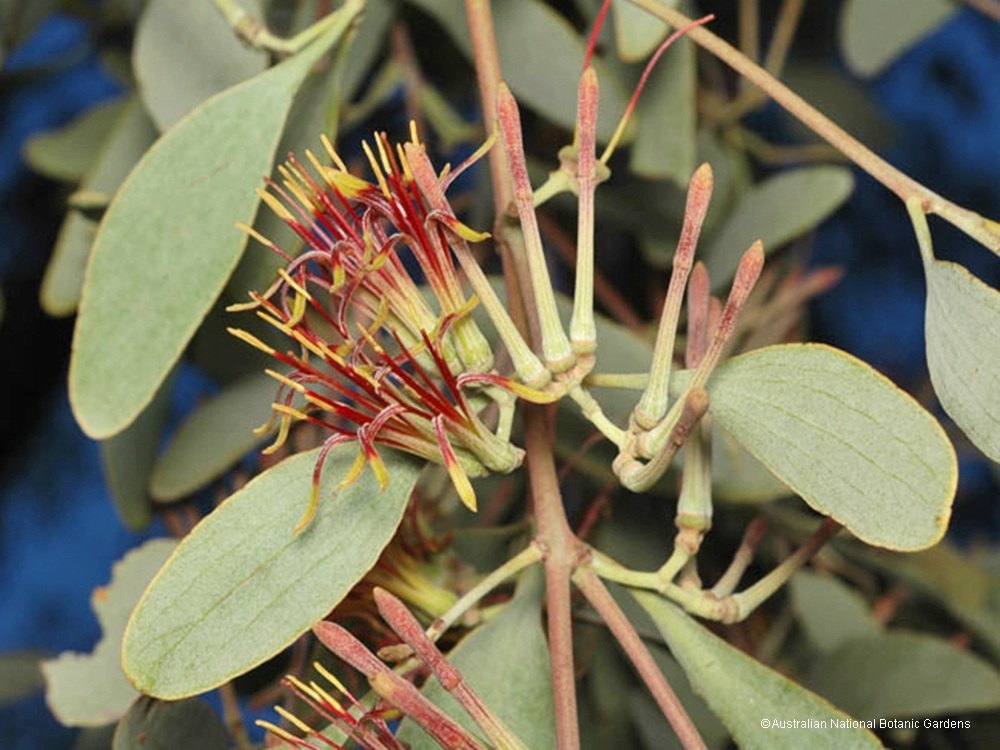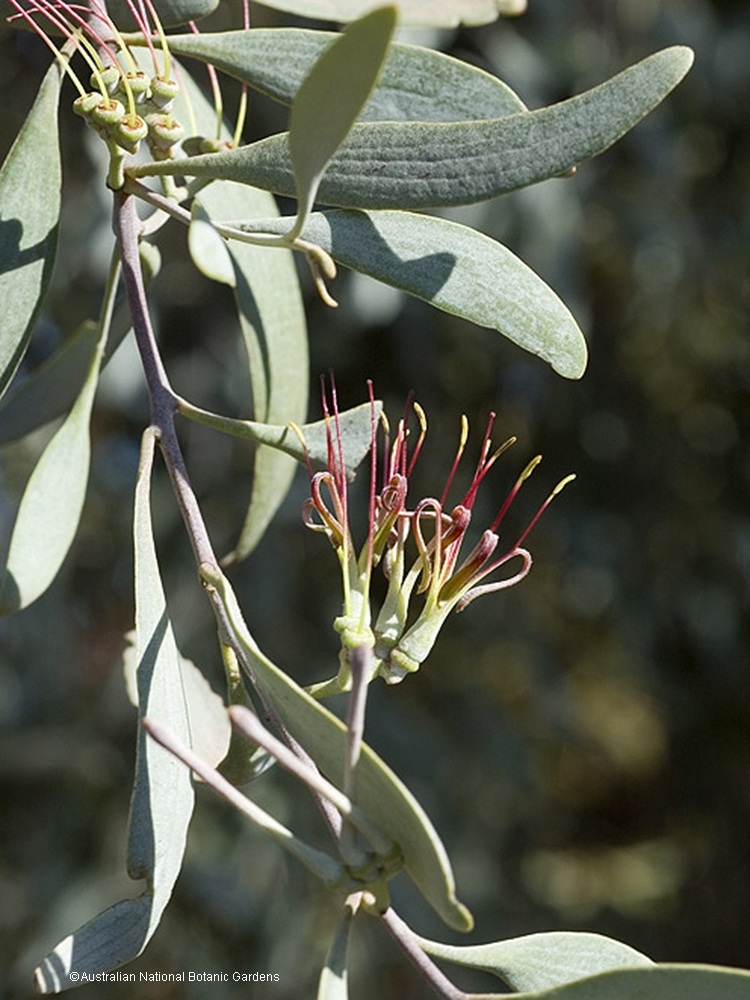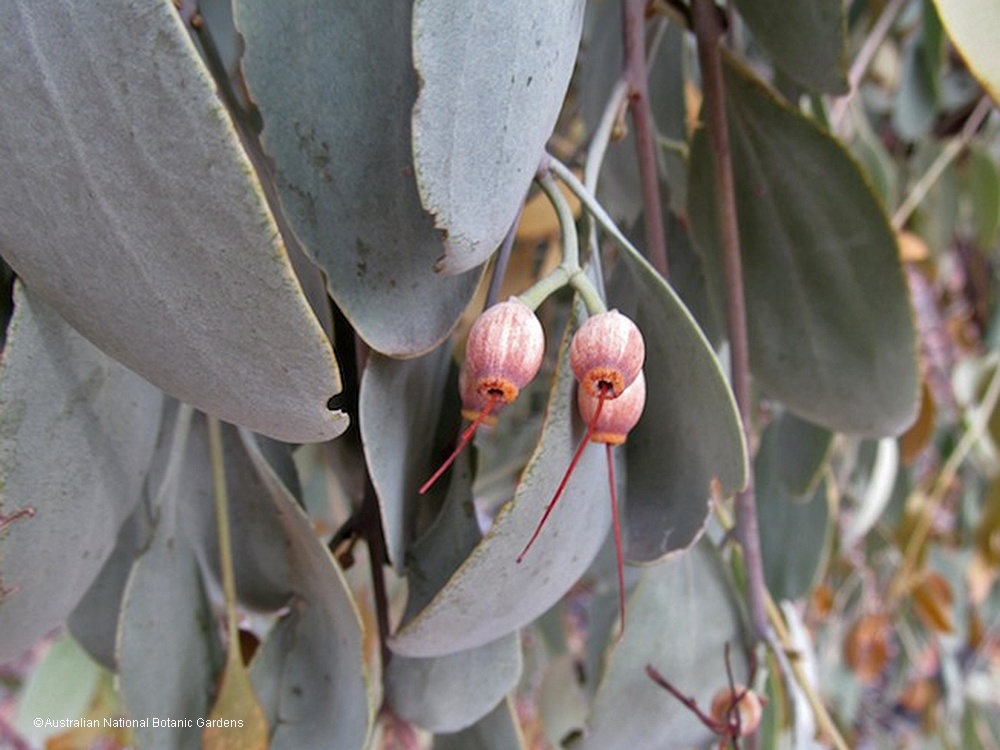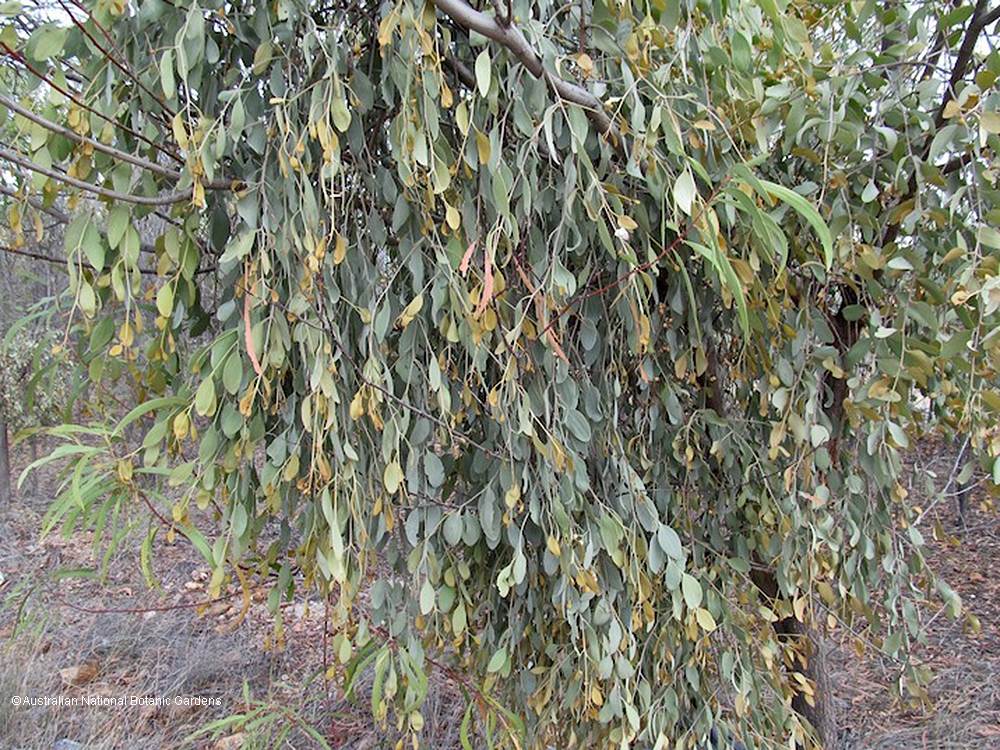Australian Tropical Rainforest Plants - Online edition
Amyema quandang (Lindl.) Tiegh.




Tieghem, P.E.L. van (1894), Bulletin de la Societe Botanique de France 41: 507.
Grey Mistletoe
Leaves simple, opposite, sub-opposite or occasionally alternate. Stipules absent. Petiole 4-12 mm long. Leaf blade lanceolate to ovate, elliptic, sometimes falcate, 3-13 cm long, 0.8-4.5 cm wide, base ± cuneate or obtuse, margins entire, apex obtuse to acute. Longitudinally veined with 3 or 5 veins, obscure on both surfaces. White tomentose or scurfy on leaf surfaces with an indumentum of very small, obscure, more or less stellate scales/hairs, becoming sparse with age.
Inflorescences axillary, flowers in umbel-like triads (groups of 3). Central flower sessile and lateral flowers stalked; pedicels 1-3 mm long. Flowers bisexual, actinomorphic, 5-merous. Calyx cupular about 1 mm long, entire without any lobing. Petals 5, free or shortly fused at base, becoming recurved at anthesis, 1.5-3 cm long, green, maroon to red tinged, with a short whit tomentum. Stamens 5, epipetalous (attached to petals), red, anthers 2-4 mm long. Ovary inferior.
Features not available.
Occurs in CEQ. Widespread in inland areas of all mainland states predominantly south of latitude 19°S, mostly in open communities and parasitic on many Acacia species but also found in dry rainforest and vine thickets.
Two varieties of Amyema quandang are recognized: Amyema quandang var. quandang and Amyema quandang var bancroftii. This profile information and associated coding has been adapted from Barlow (1984) and Harden et al. (2014).
6053





